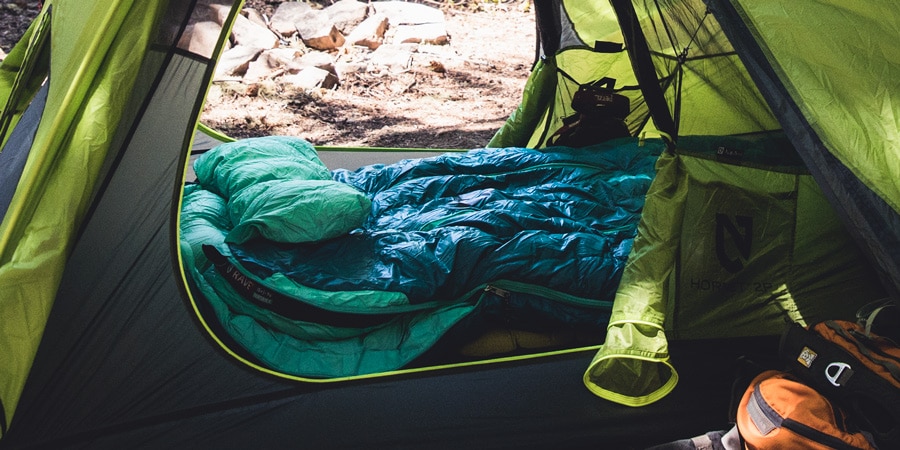How to Choose Sleeping Bags for Backpacking

Great for multiday hikes and overnights at the campground, the Mammut Perform Fiber 19°F/-7°C Sleeping Bag has an optimized fit for more comfortable sleep and a central zipper for climate regulation.
Imported.
| Best Use | Backpacking |
|---|---|
| Tested Lower Limit | 20 degrees (F) - EN |
| Tested Comfort | 30 degrees (F) - EN |
| Temperature Rating (F) | 20 degrees (F) |
| Temperature Rating (C) | -7 degrees (C) |
| Weight | L: 3 lbs. 7 oz. |
| Shell | 100% polyester |
| Zipper Location | Front |
| Insulation Type | Synthetic |
| Fill | Ajungilak synthetic fiber insulation |
| Fill Weight | L: 2 lbs. 6.9 oz. |
| Sleeping Capacity | 1-person |
| Lining | 100% polyester |
| Sleeping Bag Shape | Mummy |
| Fits Up To (in.) | L: 76.8 inches |
| Shoulder Girth (in.) | L: 58 inches |
| Hip Girth (in.) | L: 51 inches |
| Stuff Sack Size | L: 11.4 x 12.6 inches |
| Stuff Sack Volume | L: 23 liters |
| Compressed Volume | L: 21.1 liters |
| Gender | Unisex |
| Sustainability | Product meets the bluesign® criteria Contains recycled materials |
Adding a review will require a valid email for verification
Ordered the "XL" size. I am 6'6", with proportionally wide shoulders. The bag is just long enough. But a flat cardboard cutout of me would not be able to fit shoulder-to-shoulder in this bag. It seems that only length was altered from the regular size to the XL size, so if you have the build of Jack Skellington, the XL might fit you. In fact, this might be the ultimate mummy for narrow-shouldered tall people, because the bag itself seems quite nice. In retrospect, the bag description on Mammut's page hints at the fact this bag is slim, but beware buying a bag without shoulder dimensions.

The thing that really stands out to me immediately is the build quality and the materials used, the bag just feels well made and durable, held up nicely to my dog pawing at me while I was in it. It also does pack up fairly small if you use a proper compression sack, but obviously not as good as down. Haven't fully tested it out in the colder months yet but seems accurate to the rating. Comfortable to sleep in fully zipped. cons: The zipper snags despite the guard on the zipper and the material makes you more likely to slip off some sleeping pads during the night.

One of the first things that I noticed and fell in love with this bag was how small I can compress it! It was great in 20 degree weather and had plenty of room for me to fit into. One of the coolest features was not just the internal pocket but also the mag lock at the top of the zipper- really helped keep the bag secure. Also the interior of the hood is a soft material that keeps the nylon noise to a minimum! Great bag!

Very high quality bad. Superior to Nemo bags. Used car camping and multi day rafting. Didn’t give full stars because it’s a little heavy and bulky, especially when compared to the down version (which is my favorite bag Earth!). When a little extra weight/ bulk doesn’t matter, this is my go to.

The fit is great for my 6' height and average shoulder width, and the quality of materials and finish is excellent. But what really impressed me are the features, like the magnetic zipper lock and center zipper. I am very pleased!

Sleeping bag is very soft and warm. I wasn't sure how I would feel about the center zipper but it has been very nice. I would want a middle zipper on future bags aswell.

I loved the quality and the innovations on the design. Packs small for the provided warmth.

Great bag for summer into fall. Nice construction. I like the center zipper.

Lightweight, easy to pack bag. Warm during cold night. A little snug.

Great bag. Did the job it needed to in sub 45 degree weather
